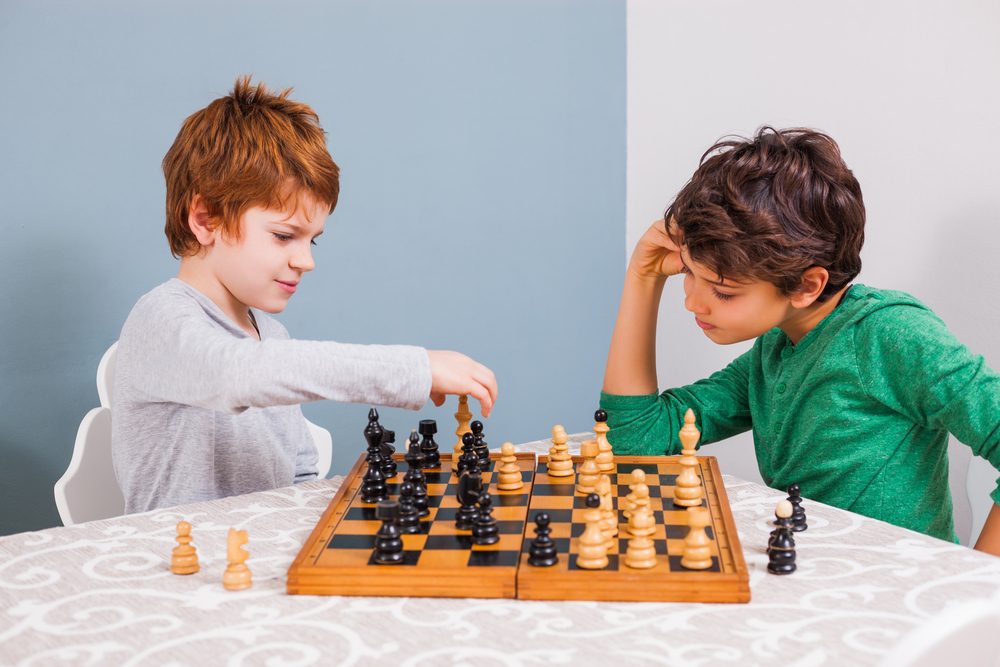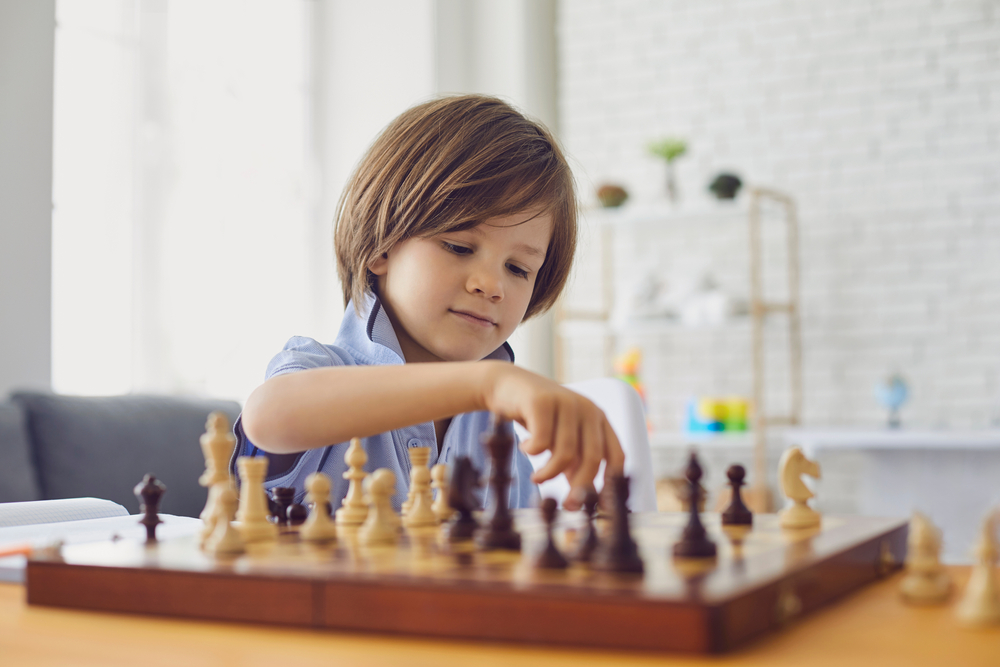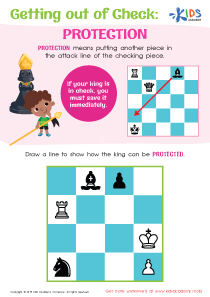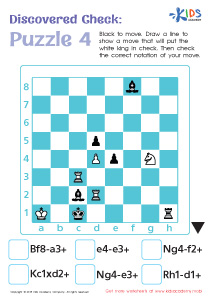Spatial awareness Chess Worksheets
3 filtered results
-
From - To
Enhance your child's spatial awareness skills with our engaging Chess Worksheets! Designed for early learners, these worksheets provide a fun and interactive way for children to develop critical thinking and problem-solving abilities while playing chess. By exploring different chess moves and strategies, kids improve their understanding of space, pattern recognition, and logical reasoning. Our carefully crafted activities not only reinforce essential math concepts but also stimulate cognitive development through enjoyable challenges. Perfect for classroom use or home practice, these printable resources make learning about chess an exciting adventure. Download our Spatial Awareness Chess Worksheets today and watch your child's skills soar!
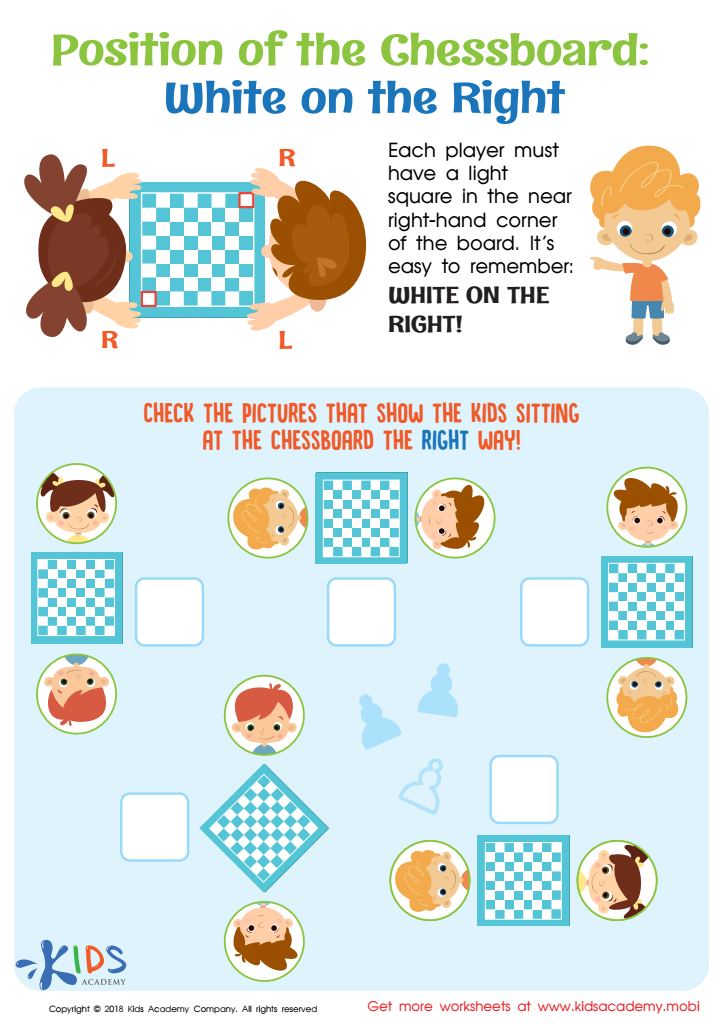

Position of the Chessboard: White on the Right Worksheet
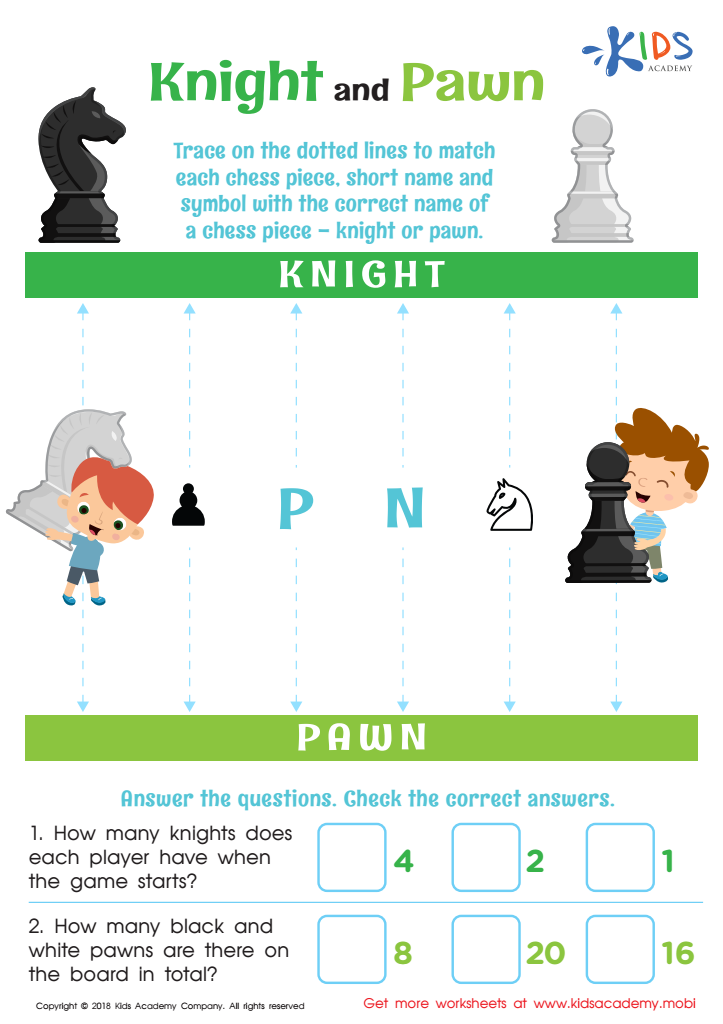

Knight and Pawn Worksheet
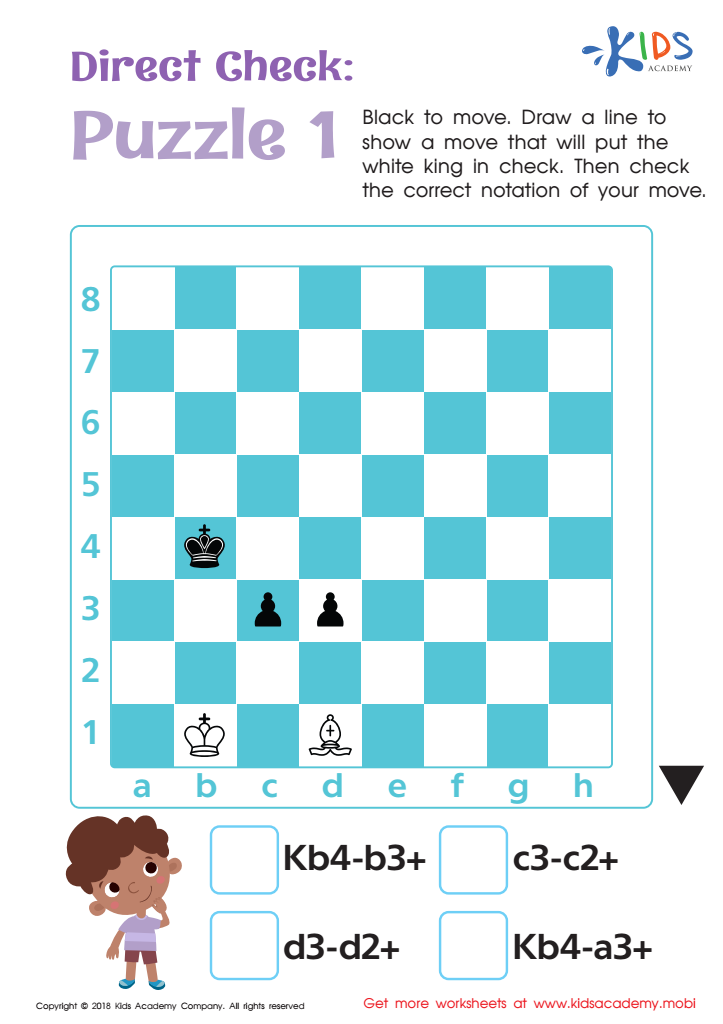

Direct Check: Puzzle 1 Worksheet
Spatial awareness, a key cognitive skill, is crucial for children's overall development and learning. Chess, a strategic board game, significantly enhances this ability. When children engage in chess, they must visualize movements on the board, anticipate opponents’ strategies, and employ foresight in their decision-making. This practice sharpens their problem-solving skills and boosts critical thinking.
For parents and teachers, fostering spatial awareness through chess can offer numerous benefits. First, it nurtures a child's ability to understand shapes, sizes, and the relation of objects in space, which is foundational for subjects like geometry in math. Furthermore, chess encourages patience and perseverance, essential traits for academic success. Children learn from both winning and losing, developing resilience and emotional intelligence.
Additionally, chess can serve as a valuable tool for improving focus and concentration. The game requires sustained attention, which can translate to better performance in classroom activities. By introducing chess into education, parents and teachers can provide a structured environment where young minds can explore strategy and creativity, laying the groundwork for future problem solvers and innovators.
Incorporating chess and spatial awareness initiatives can empower children, ensuring they possess critical skills for thriving in today’s complex world.

 Assign to My Students
Assign to My Students




